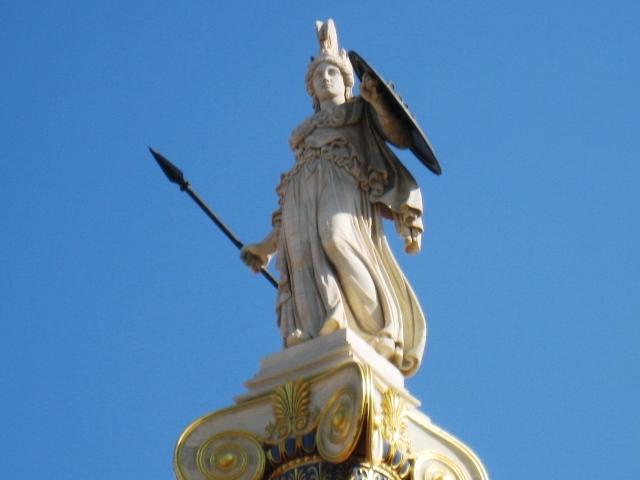In the rich tapestry of Greek mythology, the goddess Athena stands as a symbol of wisdom, courage, and strategic warfare. Among her many associations, one of the most significant is her deep connection with the olive tree. This divine bond between Athena and the olive tree holds profound symbolism and reveals the integral role of this revered tree in ancient Greek culture and its enduring legacy. In this article, we delve into the captivating connection between the goddess Athena and the olive tree, exploring its mythical origins, cultural significance, and the enduring influence it has had on Greek society.
According to ancient Greek mythology, the story of the olive tree's origin is intertwined with Athena herself. Legend has it that during a contest for the patronage of Athens, Athena, and Poseidon vied for the city's favor. Poseidon struck his trident into the ground, conjuring a saltwater spring, while Athena gifted the Athenians with an olive tree, a symbol of peace, prosperity, and abundance. The olive tree was deemed the superior gift, and Athens became Athena's city, forever intertwined with her wisdom and guidance.
The olive tree holds a sacred place in Greek culture, and its association with Athena encompasses a range of profound symbolism. The tree represents fertility, strength, and resilience, mirroring Athena's own attributes. Olive branches were woven into wreaths worn by victors in ancient Greek sporting events, symbolizing triumph and honor. The oil derived from its fruits, olive oil, became an essential staple of Greek cuisine, medicine, and religious rituals.
The significance of the olive tree extends beyond its physical presence. Olive oil, extracted from its fruits, played a central role in ancient Greek religious practices. It was used to anoint statues, altars, and worshipers during sacred ceremonies, signifying purification and divine blessing. The burning of olive oil in lamps illuminated temples and sanctuaries, serving as a metaphorical representation of Athena's wisdom and enlightenment.
The connection between Athena and the olive tree left an indelible mark on Greek society. Athens, the birthplace of democracy and philosophy, became synonymous with Athena's wisdom and the abundance of the olive tree. The cultivation and trade of olive oil became a significant economic driver, fueling the prosperity of the city-state. Even today, Greece remains one of the world's leading producers of high-quality olive oil, perpetuating the timeless legacy of Athena and her sacred tree.
The reverence for Athena and the olive tree is still palpable in Greece today. The olive groves that dot the landscape serve as a testament to the enduring bond between the people and this sacred tree. Olive oil remains a cornerstone of Greek cuisine, celebrated for its health benefits and distinct flavor. Athena's presence continues to be felt in the nation's capital, Athens, where statues, monuments, and even the city's emblem pay homage to the goddess and her precious gift.
The intertwining of Athena and the olive tree in Greek mythology reveals a profound connection between divinity, wisdom, and the bountiful offerings of nature. The olive tree's symbolism and cultural significance have shaped Greek society, its traditions, and its identity. As we appreciate the beauty and vitality of olive trees and savor the golden elixir of olive oil, we honor the enduring legacy of Athena and the sacred bond she shares with this remarkable tree—a symbol of wisdom, peace, and the everlasting spirit of Greece.
